Refugees
Turkey’s Kurds wary of path to peace after PKK declares ceasefire
DIYARBAKIR, Turkey (AP) — A momentous ceasefire declaration on Saturday stirred a mix of emotions in southeast Turkey and northern Iraq, where people bore the brunt of the 40-year conflict between Kurdish militants and the Turkish state.
The militants’ ceasefire announcement could mark a significant boost to President Recep Tayyip Erdogan’s government, two days after their imprisoned leader called for the group to disarm.
On the streets of Diyarbakir, the largest city in Turkey’s Kurdish-majority southeast, some of those who had lost relatives fighting on the side of the Kurdistan Workers’ Party, or PKK, were wary of placing their faith in the Turkish government. Turkey has yet to make a detailed response to the PKK’s ceasefire announcement.
“We do not trust them, they said the same things before, nothing has changed. Twelve years ago they said peace, peace, peace. Then there was a ceasefire and then we saw what happened,” said Turkan Duman, 56, referring to a previous peace process that broke down in 2015.
She said her son is currently serving a 12-year prison sentence for PKK membership. He was jailed after crossing the Syrian border to fight with Kurdish forces against the Islamic State group at Kobani in late 2014.
Duman also lost two brothers who were killed fighting Turkish security forces in the mid-2010s near Lice, a town to the north of Diyarbakir where the PKK was founded in 1978.
Kiymet Soresoglu, who like Duman is part of the Peace Mothers’ Association, also expressed doubt over the government’s intentions. “Of course we want peace to be established. We are afraid because they make plans or (could) play a trick,” she said.
Soresoglu, 55, also has a son serving a prison term for being a member of the PKK, which is considered a terrorist organization by Turkey and its Western allies.
He was wounded in fighting in Diyarbakir’s downtown Sur district when the earlier ceasefire broke down 10 years ago. “There is not a single inch of land left in Kurdistan where the blood of martyrs has not been shed,” she said.
“If they tell us to lay down our weapons without expecting anything in return, we, the guerrillas and mothers of martyrs, will not accept this. We would be the ones that would take the weapons of our children and continue the struggle.”
Sitting alongside her friend, Duman added: “But we want peace. Peace so that no more blood is shed, it is a sin.”
Since the PKK launched its armed campaign against the Turkish state in 1984, tens of thousands have died. Exact casualties are difficult to calculate but the International Crisis Group says 7,152 have been killed since fighting resumed in July 2015, including 646 civilians, 1,494 members of the security forces and 4,786 PKK militants.
Saturday’s ceasefire announcement was preceeded two days earlier by imprisoned PKK leader Abdullah Ocalan’s call for the group to disarm and disband.
Vahap Coskun, a law lecturer at Diyarbakir’s Dicle University, said this indicated how closely the PKK leadership based in northern Iraq was in step with Ocalan despite his 25 years behind bars.
“A very high threshold has been crossed in terms of disarmament,” he said, adding that he expected the PKK to move swiftly to hold a congress to dissolve itself.
“Unlike the last solution process, this solution process is being handled with utmost sensitivity regarding the use of time,” Coskun added.
Across the mountainous Iraqi border, which for years saw PKK insurgents slip into Turkey to stage attacks, Kurds in Sulaymaniyah welcomed the ceasefire with hopeful expectation.
Najmadin Bahaadin described it as a “historical moment” different from previous peace deals.
“It is not like the previous experiments where the PKK stopped the war several times and demanded peace but (Turkish President Recep Tayyip) Erdogan and Turkish policy were not convinced,” he said. “It seems they both reached to this conviction now.”
Sulaymaniyah, in northern Iraq’s semi-autonomous Kurdish region, is the city closest to the PKK’s headquarters in the Qandil mountains and many locals support the group.
Awat Rashid questioned whether Ocalan had been pressured by his captors to make the peace bid.
“If Mr. Ocalan was in the Qandil mountains, on top of his leadership council, would he make this peace decision? This is the question that should be asked,” he said. “To what extent you think this is reliable and it can be trusted?”
——
Ahmad contributed from Sulaymaniyah, Iraq
Refugees
Turkish Cypriot group fears that local leader is Ankara’s man who wants to partition Cyprus
NICOSIA, Cyprus (AP) — The Turkish Cypriot leader in the breakaway north of the ethnically divided island of Cyprus is toeing Ankara’s line and doesn’t really speak for the local community there, an activist group said.
The accusations came after Sener Elcil of the newly formed Patriotic Turkish Cypriot Movement, a network of nongovernmental organizations and leftist parties, met with the island’s Greek Cypriot President Nikos Christodoulides.
Cyprus was divided when Turkey invaded the northern part of the island in 1974, following a failed, Athens junta-backed coup by supporters of union with Greece. Only Turkey recognizes a Turkish Cypriot declaration of independence and maintains more than 35,000 troops in the island’s northern third.
Although Cyprus joined the European Union in 2004, only the Greek Cypriot south, where the internationally recognized government is seated, enjoys full membership benefits.
Elcin’s movement says the island’s Turkish Cypriot leader Ersin Tatar follows Turkey’s directives for partitioning Cyprus into two states.
Turkish Cypriots urgently need an internationally negotiated deal to safeguard their distinct identity as inhabitants of the island because they’re being overwhelmed by a continuous population transfer from neighboring Turkey, he said.
“Tatar is representing Turkey also because he is behaving like a civil servant of Turkey,” Elcil said.
The meeting with Christodoulides came ahead of a United Nations-led meeting next week in Geneva bringing together the rival Cypriot leaders, the foreign ministers of Greece and Turkey, and Britain’s envoy for Europe to scope out chances of resuming formal peace talks.
U.N. Chief Antonio Guterres will host the two-day gathering, which starts Monday, in hopes of breathing new life in the Cyprus peace process that has been in hiatus for nearly eight years, after the last round of negotiations collapsed amid much acrimony.
No major breakthrough is expected in Geneva, but officials say they are looking for a “positive outcome” that would inject some momentum in the peace process.
Tatar has repeatedly said he would go to Geneva to rally for a two-state deal, claiming that the “old model” of resolving one of the world’s most intractable disputes — a federation made up of Greek and Turkish speaking zones — is no longer valid after decades of failure.
Greek Cypriots insist any deal that entrenches the island’s partition is a non-starter as it contravenes long-held U.N. resolutions endorsing a federation.
They also reject a Turkish and Turkish Cypriot demand for a permanent Turkish troop presence and military intervention rights under any accord, as well as a giving the minority Turkish Cypriots veto power over all federal-level government decisions.
Elcil colleague in the movement, Izzet Izcan, said the majority of Turkish Cypriots believe a federation is the “only solution” for Cyprus.
Tatar is up for reelection in the local vote in the northern part of Cyprus in October and Elcil said he is concerned it will be an easy win, with the influx of new residents of the north from Turkey — voters who will likely cast their ballots according to Ankara’s wishes.
Refugees
Turkish top officials make sudden trip to Damascus after Syria’s deal with Kurdish-led group
ISTANBUL (AP) — Turkey’s top diplomat, defense minister and intelligence chief paid a sudden visit to Damascus on Thursday, days after Syria’s interim government reached a deal to integrate a U.S backed Kurdish-led armed group into the country’s army.
The agreement to integrate the Syrian Democratic Forces, or SDF, into the Syrian government followed fierce clashes that erupted last week between government security forces and gunmen loyal to ousted leader Bashar Assad.
Monitoring groups said hundreds of civilians were killed in the violence in Syria’s coastal communities, primarily targeting members of the Alawite religious minority to which Assad belongs.
Ahmad al-Sharaa, Syria’s interim president and a former rebel, met with Hakan Fidan, Turkey’s foreign minister; Yasar Guler, defense minister, and Ibrahim Kalin, head of national intelligence. They were accompanied by Turkey’s ambassador to Syria, Burhan Koroglu.
According to local news agency DHA, an official from the Turkish Defense Ministry, speaking on the customary condition of anonymity, said earlier Thursday that Ankara intends to examine “how the agreement reached will be implemented and its reflections on the field.”
The official added that Turkey’s expectations on Syria have not changed.
“There is no change in our expectations for the termination of terrorist activities in Syria, the disarmament of terrorists and the expulsion of foreign terrorists from Syria,” the official said.
Turkey designates the SDF and its military arm, People’s Protection Units, as terrorist organizations because of their links to the banned Kurdistan Workers’ Party.
As the Turkish delegation was flying unannounced to Damascus, Turkey’s President Recep Tayyip Erdogan presented awards for “benevolence and kindness” to a former Syrian fighter pilot imprisoned for 43 years.
The ceremony, hosted by a foundation linked to Turkey’s religious authority, honored Ragheed al-Tatari. Erdogan praised al-Tatari for his perseverance and gave him an award for his “benevolence”.
Al-Tatari was imprisoned under the rule of Syrian presidents Hafez al-Assad and later Bashar al-Assad. He had been detained since 1981. There are conflicting accounts for his imprisonment including refusing to bomb the city of Hama and failing to report a pilot desertion attempt.
Over four decades, al-Tatari was moved among prisons notorious for housing political inmates, including Palmyra prison and Sednaya. His imprisonment, described by human rights groups as one of the longest in Syria for a political prisoner, ended in December when opposition forces freed him.
In a speech on stage, Erdogan lauded al-Tatari, calling him “the brave Syrian pilot who listened to his conscience.”
Refugees
Syria announces the end of a military operation against Assad-linked gunmen
DAMASCUS, Syria (AP) — Syria’s interim government signed a deal Monday with the Kurdish-led authority that controls the country’s northeast, including a ceasefire and the merging of the main U.S.-backed force there into the Syrian army.
The deal is a major breakthrough that would bring most of Syria under the control of the government, which is led by the Islamist group Hayat Tahrir al-Sham that led the ouster of President Bashar Assad in December.
The deal was signed by interim President Ahmad al-Sharaa and Mazloum Abdi, the commander of the U.S.-backed, Kurdish-led Syrian Democratic Forces.
The deal to be implemented by the end of the year would bring all border crossings with Iraq and Turkey, airports and oil fields in the northeast under the central government’s control. Prisons where about 9,000 suspected members of the Islamic State group are also expected to come under government control.
Syria’s Kurds will gain their “constitutional rights” including using and teaching their language, which were banned for decades under Assad. Hundreds of thousands of Kurds who were displaced during Syria’s nearly 14-year civil war will return to their homes.
The deal also says all Syrians will be part of the political process, no matter their religion or ethnicity.
Syria’s new rulers are struggling to exert their authority across the country and reach political settlements with other minority communities, notably the Druze in southern Syria.
Earlier Monday, Syria’s government announced the end of the military operation against insurgents loyal to Assad and his family in the worst fighting since the end of the civil war.
The Defense Ministry’s announcement came after a surprise attack by gunmen from the Alawite community on a police patrol near the port city of Latakia on Thursday spiraled into widespread clashes across Syria’s coastal region. The Assad family are Alawites.
“To the remaining remnants of the defeated regime and its fleeing officers, our message is clear and explicit,” said Defense Ministry spokesperson Col. Hassan Abdel-Ghani. “If you return, we will also return, and you will find before you men who do not know how to retreat and who will not have mercy on those whose hands are stained with the blood of the innocent.”
Abdel-Ghani said security forces will continue searching for sleeper cells and remnants of the insurgency of former government loyalists.
Though the government’s counter-offensive was able to largely contain the insurgency, footage surfaced of what appeared to be retaliatory attacks targeting the broader minority Alawite community, an offshoot of Shia Islam whose adherents live mainly in the western coastal region.
The Syrian Observatory for Human Rights, a Britain-based war monitor, said 1,130 people were killed in the clashes, including 830 civilians. The Associated Press could not independently verify these numbers.
Al-Sharaa said the retaliatory attacks against Alawite civilians and mistreatment of prisoners were isolated incidents, and vowed to crack down on the perpetrators as he formed a committee to investigate.
Still, the events alarmed Western governments, who have been urged to lift economic sanctions on Syria.
U.S. Secretary of State Marco Rubio in a statement Sunday urged Syrian authorities to “hold the perpetrators of these massacres” accountable. Rubio said the U.S. “stands with Syria’s religious and ethnic minorities, including its Christian, Druze, Alawite, and Kurdish communities.”
____
Mroue and Chehayeb reported from Beirut.
-
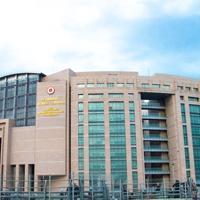
 Daily Agenda2 months ago
Daily Agenda2 months ago5 suspects nabbed for sharing information with Iranian intel
-
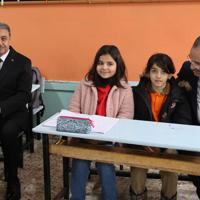
 Politics1 month ago
Politics1 month agoSoutheastern city enforces fines to tackle student absenteeism
-
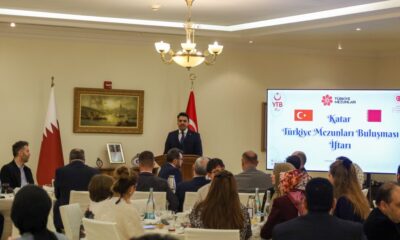
 Lifestyle2 months ago
Lifestyle2 months agoTürkiye’s Embassy in Doha hosts iftar for alumni to foster connections
-
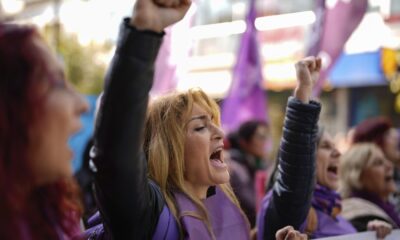
 Refugees2 months ago
Refugees2 months agoInternational Women’s Day: global protests demand equal rights
-

 Sports2 months ago
Sports2 months agoPaulista 19 maç sonra geri döndü, maç sonrası isyan etti
-

 Daily Agenda2 months ago
Daily Agenda2 months agoTrump hangi ülkelere yasak getirdi.
-
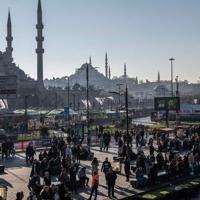
 Politics2 months ago
Politics2 months agoIstanbul ‘may break 110-year temperature record for March’
-

 Economy2 months ago
Economy2 months agoSweden to hold talks on countering soaring food costs

